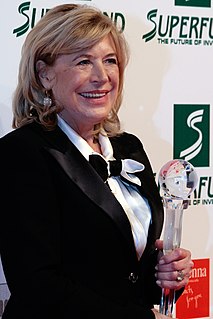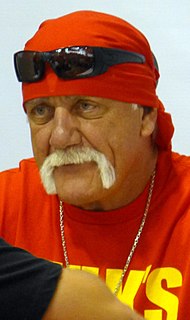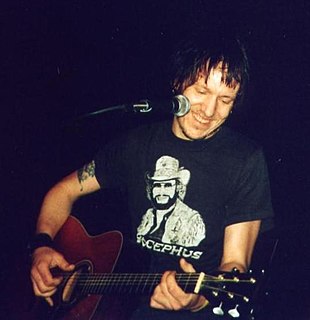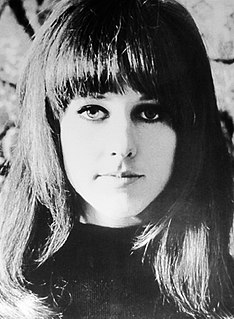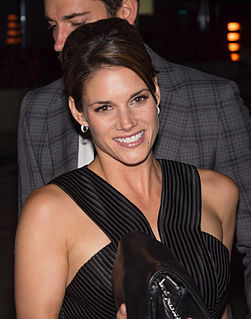A Quote by Marianne Faithfull
For some people, marriage may be very groovy. For me, it really isn't. I don't think it really is for most people anyway. Most people are not very happy.
Related Quotes
There are some really great books that have been written about slavery, but I don't think that the discourse about it in society has been very accurate or healthy. I don't think we've come up with ways to tell it that don't insult people or hit them in the wrong way. Part of the problem is that most people don't really understand what slavery was anyway. Most white people didn't own slaves. Slavery was a way of life, just like driving cars is a way of life now. It doesn't mean that it was right.
I went back to work right away [after prison]. I was very lucky — a friend of mine created a job for me at his company. Most prisoners who come home face really significant challenges when it comes to finding work. It’s very, very hard for most people who have a criminal record to get a job. I think the system is very wasteful of taxpayers’ dollars. It’s also very wasteful of human potential. I found that most people whom I was locked up with were, you know, good people who have skills and value. Prison is a missed opportunity to nurture those things.
I think people feel very comfortable reviewing the idea of me, as opposed to what I've actually written. Most of the time, when people write about one of my books, they're really just writing about what they think I may or may not represent, as sort of this abstract entity. Is that unfair? Not really. If I put myself in this position where I'm going to kind of weave elements of memoir into almost everything, well, I suppose that's going to happen.
I got tired of doing battle with people thinking I was a little weird because I wasn't in a band making happy, stilted music. The only people who really seem weird to me are people who think they're normal. People who think it's possible to be normal just by doing the same things that most people do. Is there a most people? I don't know. Television makes it seem like there is, but I think that might just be television.
Most actors don't understand acting. I think it's an art form that craft is out the window. I don't think people get it at all, most of the time. Or they get some of it, not all of it. If you get an Academy Award nomination, you think 95 percent of the profession is unemployed at any given time, most people will never even find work as an actor, and the ones who do will probably make $50,000 a year at the most if they're lucky. Some will never do Broadway. Some will never do a major role. And a really, really, really small percentage of them maybe will be nominated for a major award.
And it's kind of my own fault too, in the sense that I've used my own life as a literary device so much. I think people feel very comfortable reviewing the idea of me, as opposed to what I've actually written. I find that most of the time, when people write about one of my books, they're really just writing about what they think I may or may not represent, as sort of this abstract entity. Is that unfair? Not really. If I put myself in this position where I'm going to kind of weave elements of memoir into almost everything, well, I suppose that's going to happen.
I am good in the fact that most of my reviews have been very positive really. I get pretty good reviews. There have been some that aren't - critical. I think they are extremely - the people that wrote them really don't understand what they are looking at quite frankly or have a very preconceived notion of what conceptual art should be or where I am at or the fact that I may change what I have done from what I did 20 years ago. But there is always some reason that they just sort of get it wrong. And so it certainly doesn't affect my work.
I'm a proud Indian but I feel very, very happy that people have accepted me here as well in the west. It's the people here in Britain that have given me my newfound fame here, so I owe it to them. We must give credit where it's deserved. It's not just the Asian community, it was also the British people who voted for me on Celebrity Big Brother and wanted to see me. So, I'm very happy and I think I'm a good eclectic mix of both cultures.
